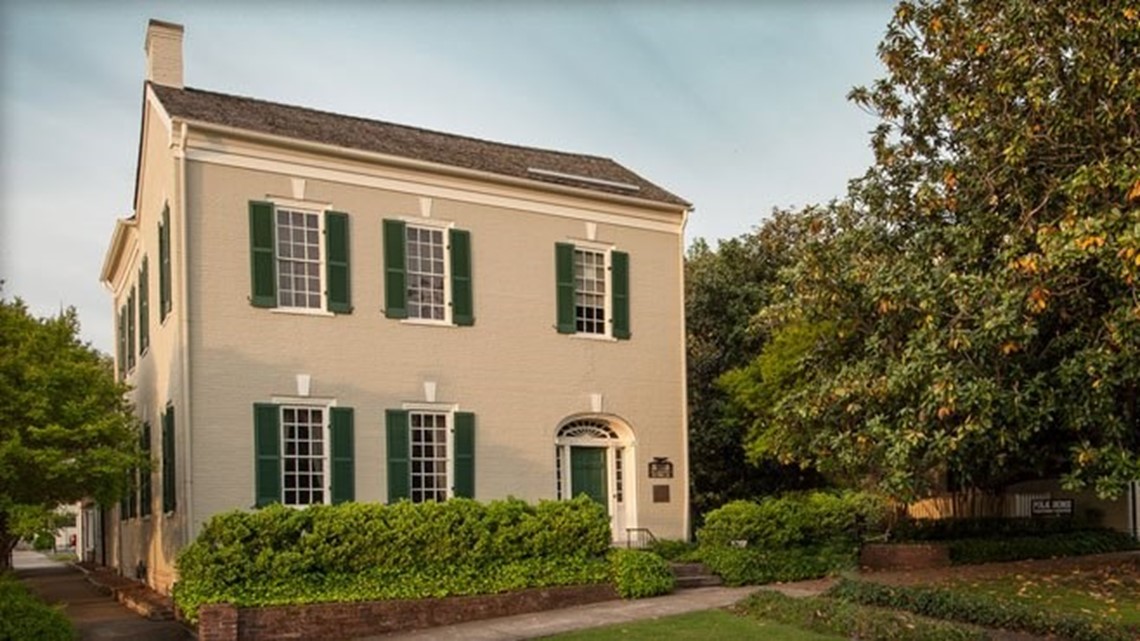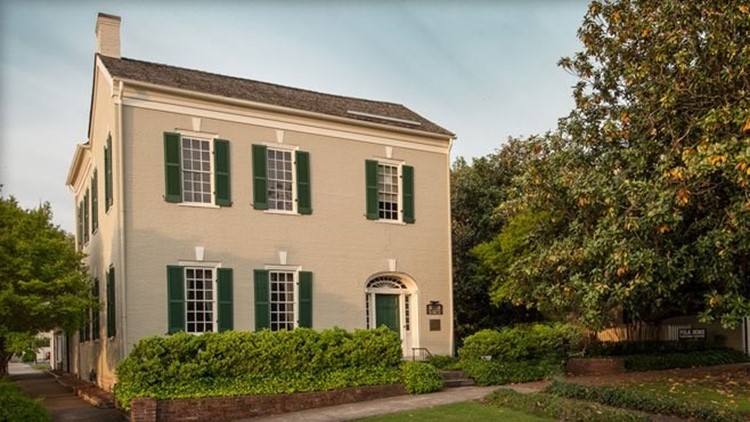WASHINGTON — A campaign to preserve and expand James K. Polk’s Tennessee home as part of the National Park Service is moving through Congress.
The House voted Monday to approve a bill that would study the feasibility of placing the President James K. Polk Home and Museum in Columbia under protection of the National Park Service. The measure now goes to the Senate, where a similar bill is pending.
“Our 11th president is a national hero with Tennessee roots, who had enormous influence on the direction of our country,” said Rep. Scott DesJarlais, a South Pittsburg Republican who sponsored the House bill.
Without Polk, “the United States might not look like it does today, a strong and prosperous nation spanning a continent," DesJarlais said in a speech on the House floor.
The two-story brick structure, built in 1816 by Polk’s father while the future president was attending the University of North Carolina, is where Polk returned after graduation and where he began his legal and political career.
The house contains more than 1,300 objects and original items from Polk’s years in Tennessee and Washington, including furniture, White House artifacts and political memorabilia.


Right now, the Polk site is owned by the state but is managed by members of a nonprofit association founded by a great-great niece of his wife, Sarah. The association supports efforts to make the home part of the park system.
Under the bill approved Monday, the Interior Department would study the site’s national significance, the feasibility of designating it as a unit of the park system, and include cost estimates for any necessary acquisition, development, operation and maintenance of the site.
► At the state level: Legislature gives final approval to moving James K. Polk
The department would have three years to finish the study and make its recommendations to Congress, which then would have to pass a bill designating the house as part of the park system.
“I can think of no better way to encourage the study of U.S. history than to protect and preserve sites like Tennessee’s President James K. Polk’s home,” said Sen. Lamar Alexander, who is sponsoring the Senate version of the bill.
Alexander’s legislation already has been approved by the Senate Energy and Natural Resources Committee and is now awaiting action by the full Senate.
In Tennessee, Polk’s remains have been the subject of a year-long debate before the state legislature.
Polk died of cholera in 1849, just months after he left the White House. State lawmakers have approved a resolution urging that his remains be exhumed from the grounds of the state Capitol and moved to the a fourth resting place – the Polk museum in Columbia, about 50 miles southwest of Nashville.
The Tennessee Historical Commission, the state Capitol Commission and a court would have to approve of the move.


